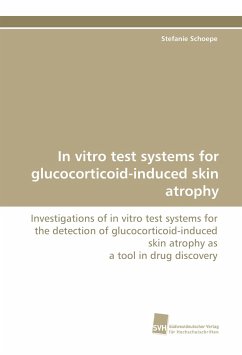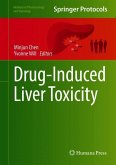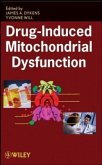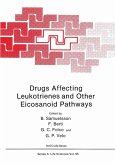Topical glucocorticoids (GCs) are anti-inflammatory effective but limited by their side effects, in particular by the induction of skin atrophy. Thus, determining the atrophogenicity of compounds is important. This study aimed to establish according invitro models. A combination of different cellular assays with markers related to collagen metabolism and epidermal thickness was investigated using standard GCs. A GC-dependent regulation of MMP expression in keratinocytes, collagen expression in 3T3 cells, as well as epidermal thickness, collagen and MMP synthesis in a full-thickness skin model was found. Demonstrating dose-dependency and correlation with GC atrophogenicity qualifyed them as candidates. The predictability of these models for invivo was finally confirmed by showing less atrophogenic effects of a novel selective GC receptor agonist (SEGRA) in comparison to clobetasol invitro subsequently comfirmed in the rat skin atrophy model. In summary, a combination of 3 invitro models is recommended to determine atrophogenicity of GC receptor ligands.
Bitte wählen Sie Ihr Anliegen aus.
Rechnungen
Retourenschein anfordern
Bestellstatus
Storno








